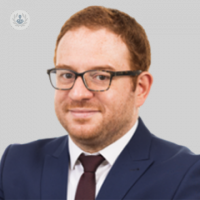Quick-fire questions on fibromyalgia
Written by:Fibromyalgia is a long-lasting condition which is reported to affect up to as many as 1 in every 25 people in the UK. However, due to a lack of seeking medical attention and misdiagnosis, it is thought that the condition affects even more people in the country. Leading consultant in pain medicine and anaesthesia Dr Mahmoud Alkholany answers your quick-fire questions about the condition, including its symptoms and treatment options.

What is fibromyalgia?
Fibromyalgia is a commonly occurring chronic pain condition, which is characterised by widespread musculoskeletal pain, fatigue, sleep disturbances, and tender points on the body.
While the exact cause of fibromyalgia remains unclear, it is believed to involve changes in the way that the brain and spinal cord can process pain signals.
What are the common symptoms of fibromyalgia?
While the prominent characteristics of fibromyalgia include pain and fatigue, it also encompasses the following symptoms:
- cognitive difficulties.
- headaches.
- irritable bowel syndrome (IBS).
- heightened sensitivity to pain, temperature, and touch.
How is fibromyalgia diagnosed?
There is no specific test used in order to diagnose fibromyalgia. Diagnosis of the condition is typically made based on a physical examination, a review of symptoms, and the exclusion of other conditions.
Doctors often use specific criteria in order to make a diagnosis. This criteria may include the presence of widespread pain for at least three months and tenderness at certain trigger points.
What are the treatment options for fibromyalgia?
Treatment for fibromyalgia aims to alleviate symptoms and improve the patient's quality of life. Treatment options may include the following:
- medications for pain
- physical therapy
- exercise
- stress management techniques
- lifestyle changes.
It is important to note that finding the right combination of treatments often requires patience and collaboration with healthcare providers.
Is there a cure for fibromyalgia?
Unfortunately, currently, there is no cure for fibromyalgia. However, symptom management is possible and crucial to maintain a balanced life.
Those suffering from fibromyalgia should be aware that many people with the condition can lead fulfilling lives by actively managing their condition, alongside the help of healthcare professionals and support networks.
Treatment plans are often individualised in order to address each patient's unique needs and the particular challenges that they face in everyday life due to fibromyalgia.
If you are suffering from fibromyalgia and would like to book a consultation with Dr Alkholany, do not hesitate to do so by visiting his Top Doctors profile today.


